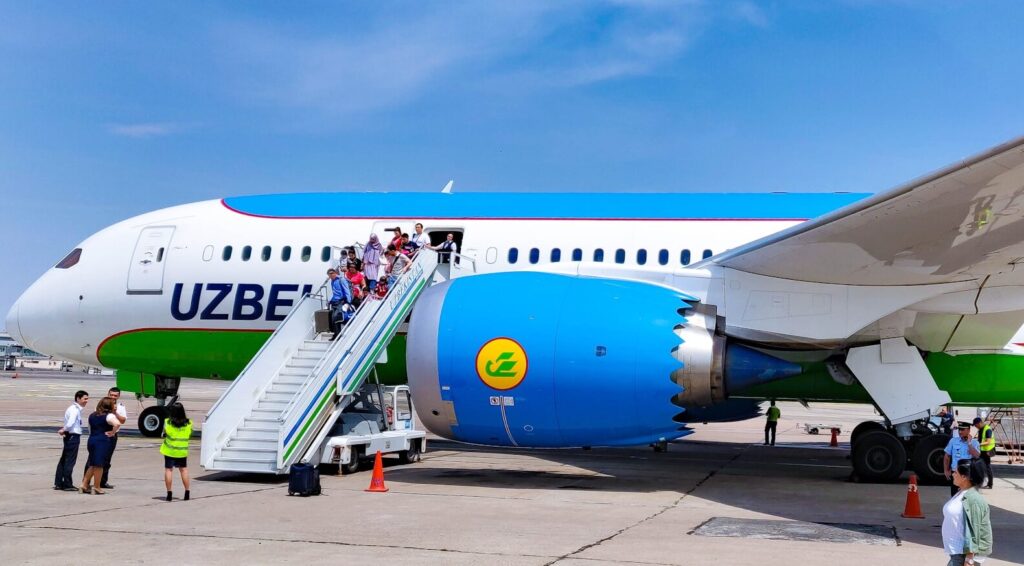The Urgench International Airport PPP project highlights a major leap in Uzbekistan’s airport infrastructure. Incheon International Airport Corporation will modernize and operate both passenger and cargo terminals. The government will maintain oversight of the airfield infrastructure, including the runway and apron. This Build-Operate-Transfer (BOT) partnership allows the private sector to manage operations while the public sector ensures regulatory compliance. Incheon plans to introduce smart terminal technology to enhance efficiency and service quality. The total investment remains undisclosed but is expected to significantly improve airport functionality. Positioned in Central Asia, this initiative aims to turn Urgench into a regional aviation hub. Through this partnership, Uzbekistan is enhancing its PPP track record by bringing in global expertise. As foreign investor interest grows, the project underscores the country’s evolving infrastructure strategy. The collaboration reflects how global firms like Incheon support emerging economies through innovation and professional airport management.
The Urgench International Airport PPP was awarded after a transparent, multi-phase tender. The government launched the process on August 1, 2024. It involved a Request for Qualifications (RfQ) followed by a Request for Proposals (RfP). Out of eight applicants, five reached the final round. Incheon emerged as the top contender due to its strong operational credentials. This process aligns with Uzbekistan’s drive to improve public procurement under global PPP norms. The country currently manages over 80 active PPP projects across sectors. It anticipates infrastructure investments exceeding $14 billion in the next five years. Reforms have streamlined legal procedures and enhanced investor protections. Global observers increasingly see Uzbekistan as a model for emerging market PPP frameworks. As a result, more countries are studying its approach. This airport initiative shows how transparency and competitiveness attract serious international players. Incheon’s selection highlights confidence in Uzbekistan’s institutional reforms and project readiness.
Incheon International Airport Corporation will construct and operate modern terminals through the airport BOT model. The airport aims to raise passenger capacity from 200,000 to over 800,000 annually. Cargo volume is also set to triple within five years. While Incheon oversees terminal operations, Uzbekistan Airports will manage airside infrastructure. This partnership ensures safety and regulatory compliance while enabling innovation. The design includes AI-powered check-in, automated baggage handling, and energy-efficient systems. These upgrades will improve service delivery and reduce operational costs. Under the Urgench International Airport PPP, both parties share responsibilities, combining private sector expertise with public oversight. The airport will become a key logistics and passenger hub in western Uzbekistan. Its location near tourism destinations further enhances its economic potential. By applying South Korea’s aviation expertise, Incheon will raise Urgench’s profile among Central Asia’s air transit networks. This balanced model demonstrates how PPPs can improve service without compromising public interest.
Incheon International Airport Corporation, active since 1999, runs one of the most efficient airports globally. In 2024, it served over 70 million passengers and managed 2.9 million tons of cargo. The firm ranks high in global aviation metrics, especially for service quality. Now, through the Urgench International Airport PPP, Incheon is bringing its experience to Uzbekistan. South Korea is increasing its footprint in Central Asia infrastructure by supporting transport, water, and smart city initiatives. This partnership expands economic ties while creating long-term opportunities. Incheon will also train local staff and set up operational systems tailored to regional needs. These efforts will boost airport performance and local capabilities. By focusing on knowledge transfer, the project ensures benefits go beyond construction. Incheon’s involvement signals global confidence in Uzbekistan’s PPP direction. Other countries will likely observe this collaboration as a roadmap for executing successful aviation partnerships in developing markets.
Located near Khiva, a UNESCO World Heritage Site, Urgench Airport plays a vital role in regional tourism. Authorities expect a 150% rise in visitor numbers within three years. Cargo terminal upgrades will support exports of textiles, fruits, and manufactured goods. The Urgench International Airport PPP is projected to create over 1,000 jobs during and after construction. BOT structuring will deliver these benefits without adding to government debt. Uzbekistan’s success with this model is attracting attention across Central Asia. Kazakhstan, Kyrgyzstan, and others plan to follow with similar initiatives. According to the World Bank, Central Asia needs $500 billion in infrastructure investment by 2030. Public-private partnerships are expected to bridge this massive financing gap. Urgench Airport’s transformation proves that PPPs can boost regional economies. With clear roles and results, this model provides a path for sustainable development. The project offers a replicable framework for other airports aiming for efficient modernization.



